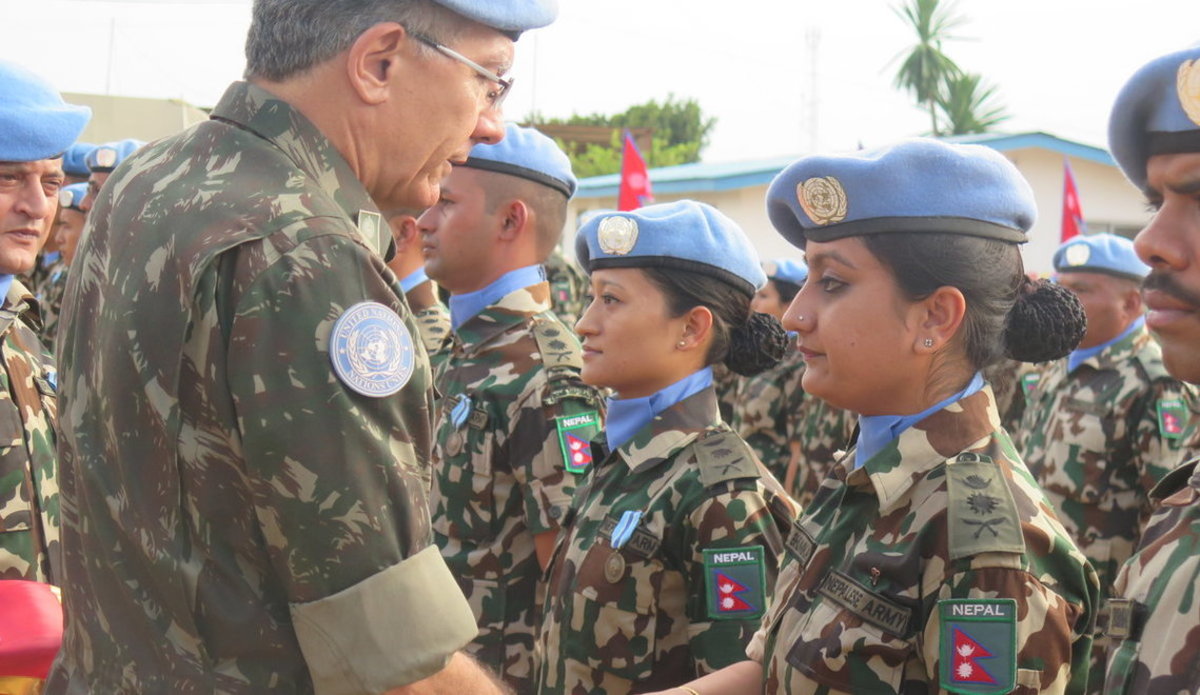Text by Mélanie Alphonse
The United Nations Organization Stabilization Mission in the Republic of the Congo (MONUSCO) has just celebrated its 20-year anniversary as a peacekeeping mission, led by the United Nations. The initiative started after the UN security council decided to step in during the second armed war in Congo, dated 1998, in order to oversee the ceasefire agreement. Twenty years later, the country is still suffering from demonstrations, violence and undemocratic issues. So, what has MONUSCO accomplished during the last 20 years as an active peacekeeping mission? And what does the future look like?
Established in November 1999, the initiative is one of the largest peacekeeping operations to date. One year earlier, Congo’s second war started as a side effect of the first war in Congo and the genocide in Rwanda. The war broke out when the president of that time, Joseph Kabila, decided that foreign soldiers and Rwandan must leave the state. Due to the extent of the conflict, the United Nations Security Council decided on the mission to ensure that all involved parties adhered to the ceasefire agreement. MONUSCO, then called United Nations Organisation Mission in the Republic the Democratic of the Congo (MONUC), had a number of active tasks. They started by maintaining the liaisons and observe the ceasefire, and today they are working to protect the civilian and humanitarian personnel, and to provide for aid to the governmental stabilization projects, as well as protecting human rights. As seen, in the last 20 years, the responsibilities of the UN peacekeeping mission have increased, but how has their work affected development in Congo?
An ongoing stabilization project
To mark its anniversary, MONUSCO has published a report in partnership with a number of related organisations in which they summarized their main achievements, alongside further plans for their future. One of the biggest challenges was to strengthen and rebuild the political framework, with MONUC playing a major part in the presidential elections, notably in 2006. Even if the mission has been active for a long time, they have struggled to maintain a good relationship with the Congolese government. But they claim to still have a commitment from the United Nations and exterior governments. Due to the weak relationship with the government, the credibility and legitimacy of MONUSCO have decreased, especially since the presidential election of 2011.
Both MONUSCO and MONUC have been engaged in several election, protection, and stabilization programs since the start of their mission, but they have had their ups and downs. For instance, the mission has worked to protect the civilians and demilitarise armed groups in conflict zones, such as the eastern parts of Congo. Even though challenged to disrupt some armed groups, the mission has not been able to efficiently corporate with regional actors, both within and outside the national border, resulting in unequal reaches within the mission. This question has been a bigger priority within recent years. On the other hand, they did succeed in cutting down child soldiers recruitment and they also increased the awareness of “gender sensitivities” which occurs during the civil conflicts.
A new president and improved cooperation
The relationship between the Congolese government and MONUSCO seemed to improve after the election of president Felix Tshisekedi in 2018. The president priorities to maintain and strengthen the control over the military forces in the country, but he also seems to struggle with the cooperation with party members of the ex-President Joseph Kabila and a complex economic agreement. MONUSCO has currently one of the best relationships to the government for all time. If they can communicate with other oppositions parties and supports, MONUSCO believes that they could go through exit plans who still consider the future peace and stability, without risking financial cuts or basic needs.
As the national actors seem to be more willing to cooperate with MONUSCO, uring last years, MONUSCO ‘s scope has been reduced. The mission, which had previously employed around 20.000 people, has now lost the support of one of its largest donors, the United States of America, which claimed “that they were no longer supporting the unproductive peacekeeping missions”.
And what will happen next?
One idea is that the exit plan will go through much faster than the United Nations imagine, especially considering the budget cuts the mission has already suffered. However, before exiting, they need to be able to provide “economical and stability guaranty during departure”. The terms of such stability remain unclear as the Congolese government and MONUSCO already tried to develop an exit strategy with former President Kabila, without much success. Even if MONUSCO’s main task would be to provide security, humanitarian and political support, the financial matter plays a big part in this mission. So far, the initiative has failed in both national stabilization and humanitarian improvement, mainly due to the poor relations between MONUSCO, the local, and national actors in Congo.





